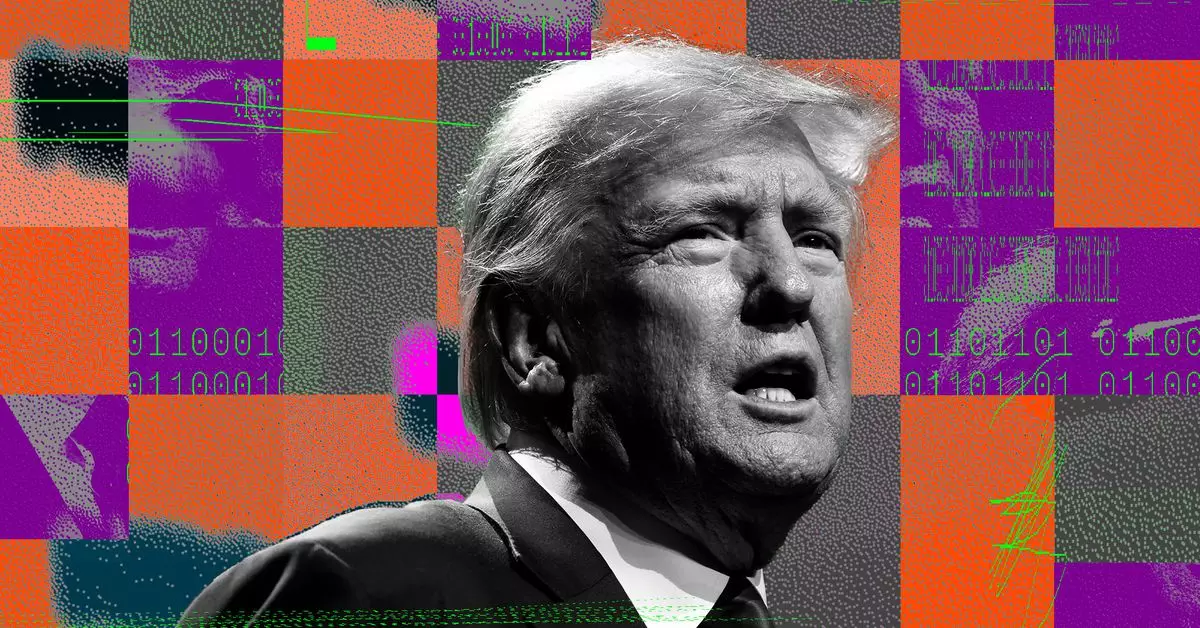The debate surrounding TikTok in the United States has become emblematic of broader concerns around national security, political influence, and the power of social media. At the heart of the issue is a looming Supreme Court decision that could redefine the relationship between the government and digital platforms. The interplay of politics and media has taken a dramatic turn since Donald Trump, the President-elect, stepped into the fray, seeking to negotiate the future of the controversial app. This situation presents significant implications for free expression and American tech policy.
Recently, the Supreme Court agreed to hear arguments regarding a bill passed by Congress that seeks to ban TikTok on national security grounds. Critics of the bill argue that such drastic measures violate the First Amendment, which guarantees freedom of speech. The legislation allows the President to delay enforcement if progress is made toward a solution that alleviates national security concerns about TikTok’s ownership by the Chinese company ByteDance. The looming deadline of January 19th, coinciding with the presidential inauguration, adds urgency and complexity to the negotiations, as Trump submits an amicus brief positing his unique qualifications to broker a deal.
Trump’s assertion that he possesses exclusive “dealmaking expertise” demonstrates a keen awareness of his political image while echoing themes from his previous administration. Affirming his ability to negotiate a resolution to save TikTok, he underscores his belief that the platform is crucial for political engagement and freedom of expression. This perspective is pivotal, particularly as TikTok’s popularity surged during the 2024 election cycle, where it notably served as a medium for Trump’s campaign outreach.
While Trump’s amicus brief indicates his intentions to address the TikTok situation pragmatically, it lacks concrete proposals on how such a deal would materialize. Speculation suggests that resolving the national security concerns may require ByteDance to divest a significant portion of its ownership. However, Trump’s failure to outline specific terms leaves much ambiguity and raises questions about the feasibility of such negotiations.
Furthermore, Trump’s position reflects broader sentiments in the political landscape, where social media platforms are often scrutinized for their influence on public discourse. By asserting that TikTok represents “a unique medium for freedom of expression,” he pivots from his earlier stance advocating for a ban. The contradiction highlights the fluidity of political rhetoric in the face of evolving public sentiment, particularly among younger voters who have embraced TikTok as a platform for expression.
Despite Trump’s attempts to advocate for TikTok’s continuation, substantial political pressure persists to enforce a ban. Prominent figures, including Mitch McConnell and Representative Ro Khanna, are rallying support for the prohibition, emphasizing national security threats posed by foreign-owned apps. This dichotomy between Trump’s position and that of established political leaders exemplifies the fractured nature of bipartisan support regarding technology regulation.
Moreover, public perception of TikTok remains a double-edged sword. While it has garnered a loyal user base with over 14 million followers for Trump himself, the app’s ties to China make it a focal point of mistrust. The potential for government restrictions on social media creates a treacherous landscape for debate over where national security ends, and individual rights begin.
As the Supreme Court prepares to address this significant legal question, the implications extend beyond TikTok. The forthcoming decision may set a precedent for how the government interacts with social media platforms, influencing future regulations and potentially affecting other apps and services with similar affiliations. The case brings to light the necessity of balancing a commitment to national security with the First Amendment rights of users and creators.
The ongoing deliberations surrounding TikTok encapsulate a multifaceted conflict between political ambition, free speech rights, and national security concerns. As Donald Trump seeks a negotiation to preserve the platform, the stakes have never been higher, heralding potential changes not just for TikTok, but for the landscape of American digital discourse as a whole. The outcome will likely resonate through various corridors of power and influence, setting important precedents that will shape the future of technology and communications in the United States.


Leave a Reply